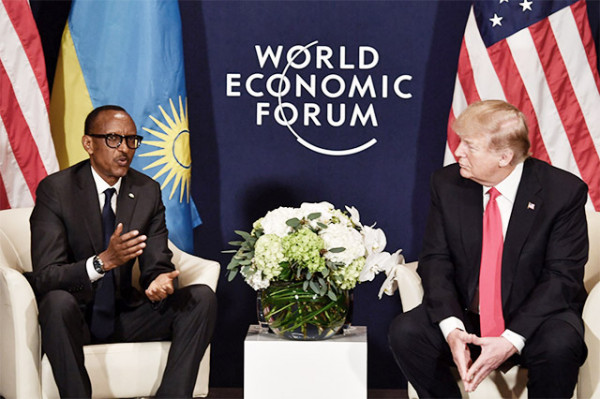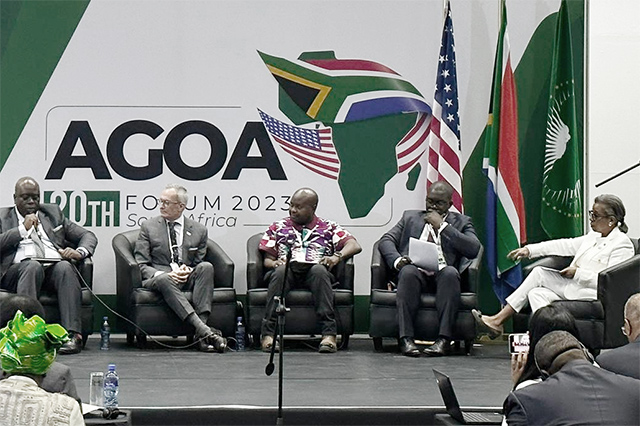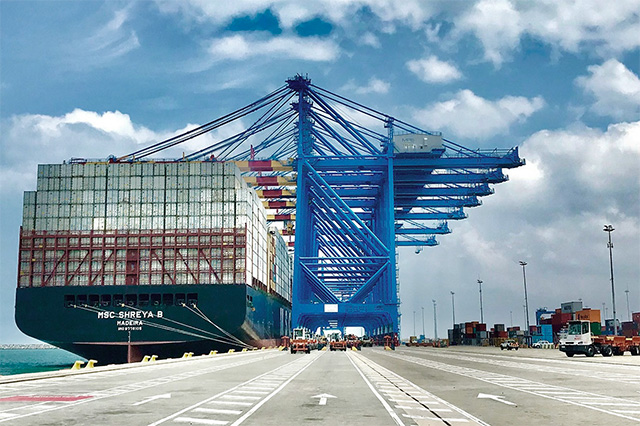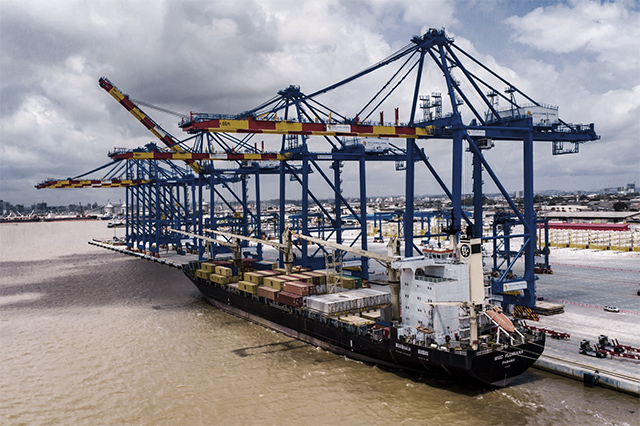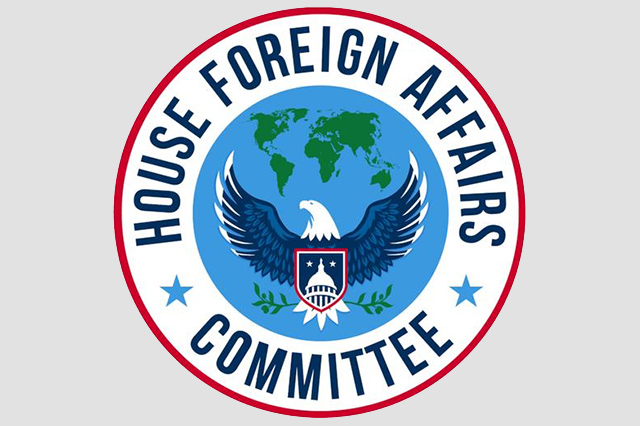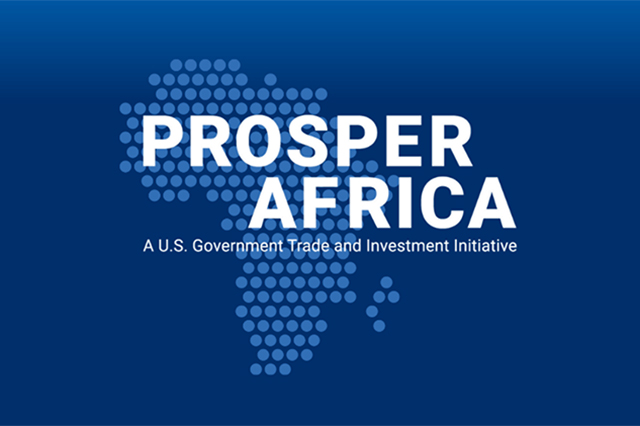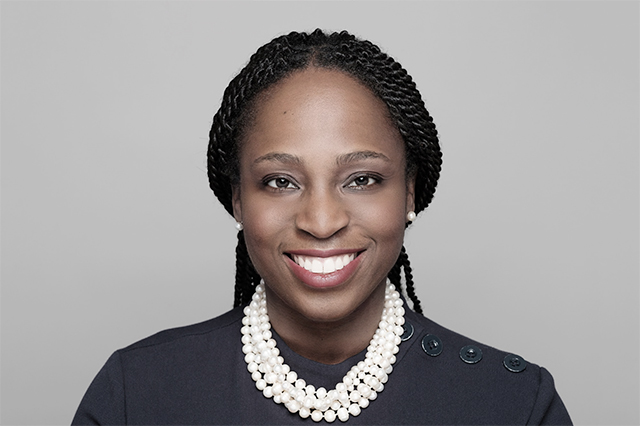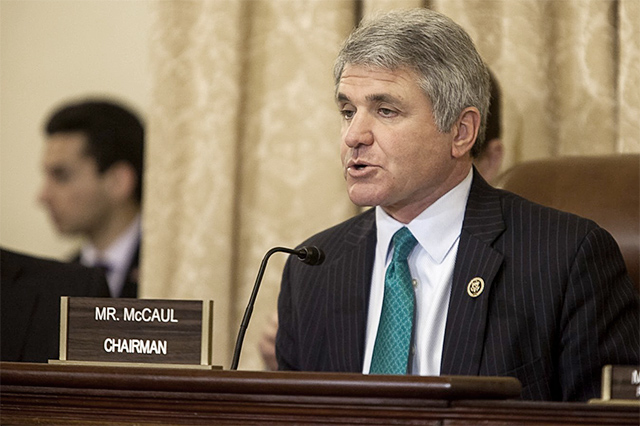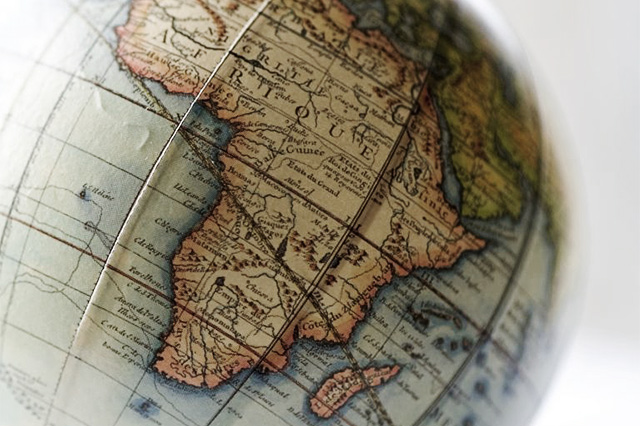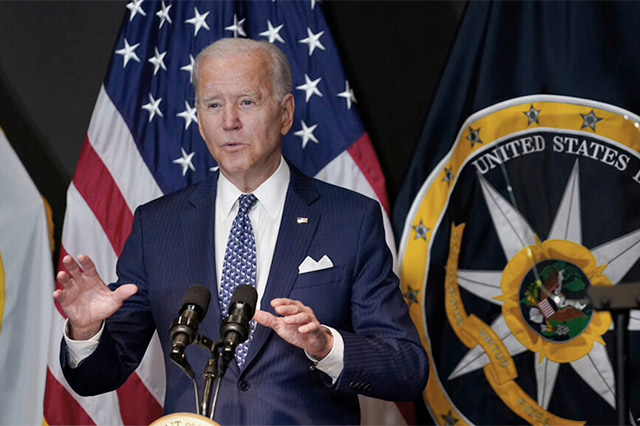Prosper Africa’s partial answer to promoting US trade and investment
Commerce Deputy Secretary Karen Dunn Kelley last week unveiled the Trump administration's signature initiative “Prosper Africa.”
Building on National Security Adviser John Bolton’s remarks in December 2018, she outlined the U.S. government’s plan to establish a one-stop shop to facilitate deals and “modernize and coordinate the resources of U.S. agencies” to help U.S. companies pursue commercial opportunities in Africa.
Administrator Mark Green of the U.S. Agency for International Development (USAID) expanded on the “nuts and bolts” of the program, including matchmaking services and transforming its trade and investment hubs into multi-agency platforms. Green added that Prosper Africa is not a new program, but rather, it is “a new way of doing business.”
Setting aside the bluster, Prosper Africa amounts to a coordination mechanism—a necessary but insufficient reform. It promises to align and sharpen the U.S. government’s economic tools, while failing to articulate what the United States, in partnership with the private sector, is trying to build.
Q1: What does Prosper Africa mean for U.S. companies investing in sub-Saharan Africa?
A1: Prosper Africa was designed to solve a persistent problem for U.S. companies: how to navigate the U.S. bureaucracy and benefit from its various programs and services. As indicated by the President’s Advisory Council on Doing Business in Africa (PAC-DBIA) in 2017, it is difficult to compete with foreign competitors because the United States does not offer a whole-of-government approach. A U.S. firm seeking assistance has to go on a frustrating scavenger hunt, knocking on individual department and agency doors to secure U.S. support.
Prosper Africa seeks to remove this hurdle to trade and investment. It is essentially a “back-of-the-house” fix, which many U.S. firms say is welcomed and long overdue. The U.S. private sector has generally applauded the initiative, subscribing to the idea that “something is better than nothing.” Considering that U.S. exports into Africa have declined by 32 percent from a high point in 2014, Prosper Africa has the potential to do a lot of good. Specifically, the Commerce Department’s concierge service and leveraging of its professionals in 100 U.S. cities, as well as USAID’s “deal facilitation” teams.
These reforms, if implemented effectively, should work synergistically with the new U.S. International Development Finance Corporation (DFC), which will combine the Overseas Private Investment Corporation (OPIC) and USAID’s Development Credit Authority, plus include new development finance capabilities, such as equity authority, and have a higher lending limit.
Prosper Africa, however, does very little for U.S. companies that remain squeamish, skeptical, or uninformed about investing in the region. The initiative is premised on the idea that businesses are bullish on Africa, but they have shied away because U.S. government support is inefficient. Prosper Africa doesn’t do enough to win over the doubters. It is not clear if the initiative will tackle obstacles to investment, including corruption, red tape, and an uneven commitment to the rule of law. While Green pledged to remove “policy regulatory and logistical trade barriers,” he did not expand on what programming underpinned this assertion. U.S. investors are not going to go big in Africa when Latin America and Southeast Asia are better, safer bets.
Side note: it was troubling that an initiative that promises better U.S. coordination was presented piecemeal in a series of agency-specific speeches. Only Tibor Nagy, the assistant secretary of state for African affairs, really stitched it together, cheerleading for the whole affair on Twitter. It was a bad sign that Prosper Africa’s public debut appeared siloed and disjointed.
Q2: How does Prosper Africa align with U.S. efforts to compete with China in the region?
A2: When Bolton first introduced Prosper Africa, he billed it, along with the new DFC, as the U.S. answer to China’s Belt and Road Initiative (BRI). He mentioned China 14 times in that speech, calling out Beijing for “bribes, opaque agreements, and the strategic use of debt to hold states in Africa captive.” This hawkish framing went down poorly with Africans and even with some U.S. firms that invest in Africa and China. First, Bolton’s rhetoric was insulting to African leaders and publics. It implied that Africans were patsies, deceived and manipulated by China.
It denied any agency to Africans who understand quite well what risks they are accepting when engaging with Beijing. Second, the Bolton speech oversold Prosper Africa’s effects. An initiative that streamlines U.S. government bureaucracies isn’t even in the same ballpark as President Xi’s pledge of $60 billion in grants and loans.
Prosper Africa is not an antidote to China’s economic presence or its political influence across the region. Without the comparable financial commitment to back U.S. investments, it is hard to imagine a significant increase in U.S. exports or financial flows. The U.S. firms operating in Africa will continue their work, albeit grateful that Prosper Africa made transactions easier. Moreover, many U.S. companies will not forgo opportunities to borrow from and work in tandem with Beijing to make money; GE and a Chinese company last week won a bid to build a $4 billion hydropower project straddling the Zimbabwe-Zambia border.
Similarly, African governments are not likely to abandon China as a political ally anytime soon. Beijing has perfected the art of courting African leaders while, in contrast, no U.S. cabinet official attended Prosper Africa’s launch in Maputo. As former Liberian minister of Public Works W. Gyude Moore told the Washington Post : “The U.S. does not have the decency, the courtesy, to send a Cabinet-level official to this event.”
Q3: What should the U.S. government do to strengthen and refine its signature economic program?
A3: Prosper Africa has real potential, and it is not too late to refine its framework to increase U.S. trade and investment in sub-Saharan Africa. At the minimum, it requires greater focus and more attention to dismantling barriers to U.S. investments. Below are some recommendations to ensure a better rate of return on this initiative.
- Adopt a Sectoral Focus. Prosper Africa is agnostic about what sectors present an attractive value proposition for U.S. companies. It does not signal which sectors align with U.S. comparative advantage or coincide with U.S. national security goals. According to Aubrey Hruby at the Atlantic Council , these sectors include services, finance, technology, and entertainment. A sectoral emphasis has a secondary effect: it grows U.S. government experts. Power Africa is a good model . Like Prosper Africa, it was at first just a coordination mechanism. However, because it had a sectoral focus, it spurred interest from U.S. companies in power generation, resulting in 121 transactions that will add around 10,000 megawatts. It also created a cohort of USAID, State, Commerce, and OPIC officers who were conversant in the industry, its challenges, and its opportunities.
- Invest in Marketing and Storytelling . The United States has been relying on a series of tired clichés about Africa’s economic potential. Since the 1960s, U.S. officials have talked up vast mineral deposits, a demographic boom, and the fastest growing economies in the world. Unfortunately, this hasn’t moved the dial and has been unable to compete with persistent negative stories about Africa in the U.S. media. It is high time to develop a new narrative, especially one that does not define the United States as //medium.com/@eolander/opic-is-wrong-to-position-itself-as-the-were-not-china-development-finance-agency-c97dbbc15d20">a rival or alternative to China. It is imperative to conduct some market research, including testing which stories, images, and statistics more effectively prime small and medium U.S. enterprises to consider investments in sub-Saharan Africa.
- Fix the Enabling Environment. The United States should redouble its efforts to remove impediments to U.S. investment. The U.S. government has a model in the Millennium Challenge Corporation, which uses 20 independent and transparent policy indicators and selects countries based on policy performance. African governments have consistently responded to these “race to the top” programs and diligently worked to climb up indices, such as The World Bank’s Doing Business reports. The United States could develop scorecards focused on the investment climate, unlocking technical assistance and financial support to African governments and U.S. companies, respectively, in high performing countries.
Judd Devermont is the director of the Africa Program at the Center for Strategic and International Studies in Washington, D.C.


